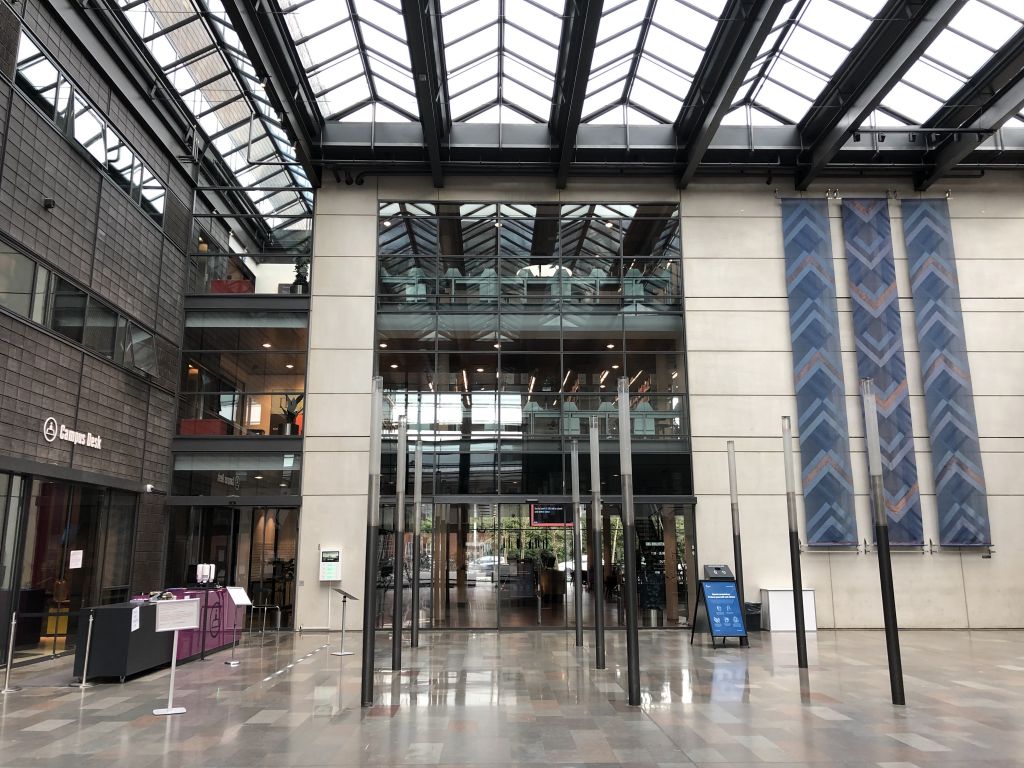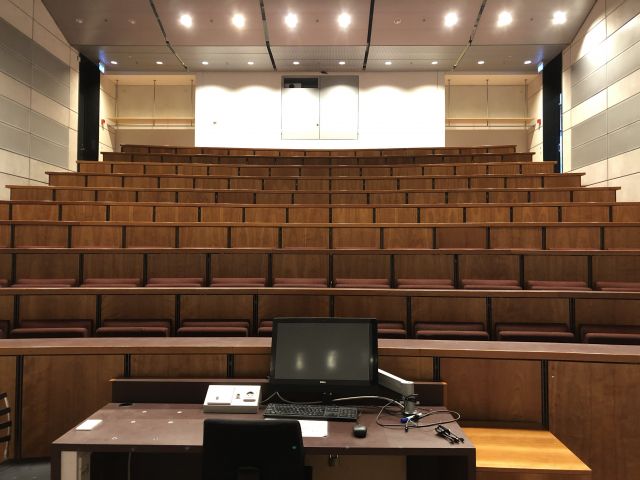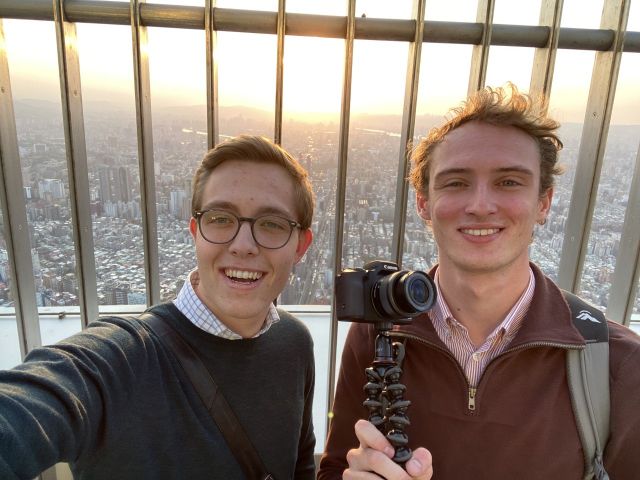First it imprisons his family in Italy, then coronavirus banishes him from his workplace

Giulio Zichella follows the current situation closely. Not only in Denmark, but also in Italy where he has large parts of his family. (Photo: Anne M. Lykkegaard)
When Italy closed down entirely on the morning of Tuesday March 9, it may have seemed a rather drastic move. However, less than 48 hours later, Denmark followed suit. Giulio Zichella, an Assistant Professor at CBS with family in Italy reflects on the situation both there and in Denmark. “People in Italy are afraid and they are asking whether the situation could become even more complicated,” he says.
When Giulio Zichella, Assistant Professor at the Department of Operations Management at CBS, stopped by the office on the afternoon of Wednesday March 11, he greeted me in the doorway by stretching out his foot. I do the same and we kind of ‘foot bump’, because shaking hands is not a good idea. We laugh a little awkwardly at the situation.
I reached out to Giulio Zichella knowing he comes from and has family in the region of Puglia in Southern Italy, to discuss the situation in Italy, where citizens awoke on Tuesday March 9 to instructions that they should only go outdoors to visit supermarkets and pharmacies.
Little did we know that the very next evening, on March 11, Denmark’s Prime Minister, Mette Frederiksen (S) would lock down schools, universities, cultural sites, kindergartens and other public institutions in an effort to prevent the coronavirus from spreading.
Naturally, I contacted Giulio Zichella once again. What was happening in Italy, now suddenly also applied to Denmark.
“Sorry, if you can hear water running. I’m just in the kitchen,” says Giulio Zichella on the phone when I call him on Friday March 13. Like most CBS employees, he too has been ordered to work from home.
“When I arrived at work on Thursday morning, only a few other colleagues were there, picking up belongings to work from home. The situation has escalated so quickly. But the measures being taken are good, and I’m happy that Denmark has acted promptly,” he says.

The halls of CBS are deserted in the time to come, due to the government-issued lockdown of universities. (Photo: Mette Koors)
But let us turn back time to the afternoon of Wednesday March 11, when we talked about his relatives in Italy and his view of the situation at that time.
“One of Europe’s greatest advantages is that moving about is easy, and it doesn’t feel big. Travelling from Copenhagen to my hometown in Italy takes as long as the journey by train from Milan to my hometown. And the hardest part right now is knowing that I can’t go back and visit my family as I please. At least for some time. And that worries me,” he said.
“Having to stay home is no fun at all”
Giulio Zichella is in regular contact with his relatives in Italy about the situation, and what affects them the most is not being allowed to move around freely.
“Having to stay at home is no fun at all, particularly for those who live alone. My mom, who is a widow, is religious and most churches have been ordered to close. And maybe it’s a small thing, but to her it’s an important everyday act that is no longer possible,” he explains.
The situation in Italy seemed to go from bad to worse in a matter of hours rather than days. At the moment, Monday March 16, the death toll has surpassed 1,800.
“People are afraid and are asking whether the situation could become even more complicated. What will happen next, and what can be done? That’s what Italians are talking about,” says Giulio Zichella.
And this is what the Danes will also want to know, Giulio Zichella believes. He explains that the biggest problem in Italy right now is that people are questioning whether the measures will be sufficient for preventing the virus from spreading. This could also be the case in Denmark in a week’s time.
“The number of coronavirus diagnoses is unlikely to decrease within the next seven days. This may prompt some people to doubt the effectiveness of the measures enforced to fix the situation. But in fact, we probably won’t see a full effect for another two weeks. We must trust the experts on this – and each other. Which is why I’m hopeful that the situation in Denmark will be much less serious than it is in Italy,” he says on the phone from his kitchen.
CBS WIRE will continuously interview staff and students about how they are experiencing the situation caused by the coronavirus. If you have a story to share, don’t hesitate to contact us: aml.wire@cbs.dk / mko.wire@cbs.dk

































































































































Comments